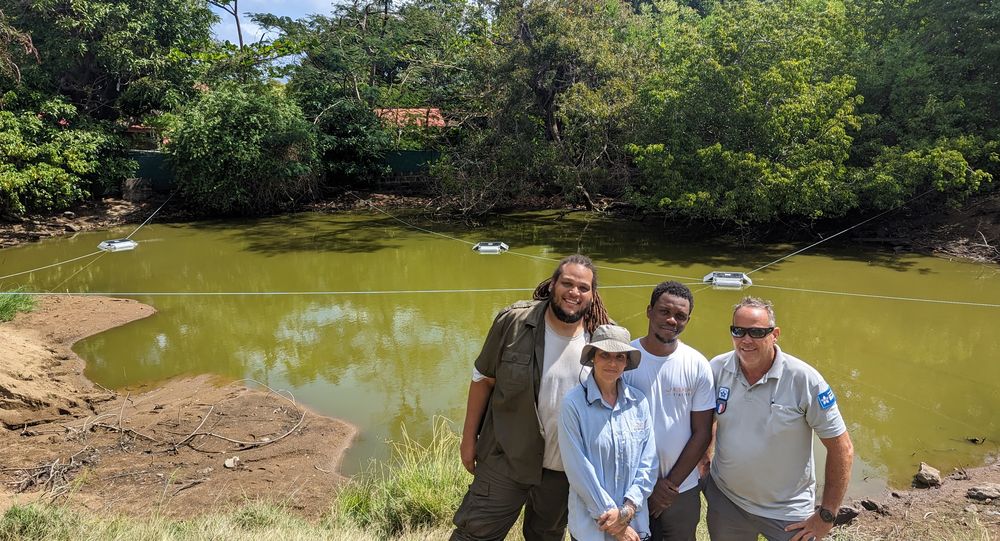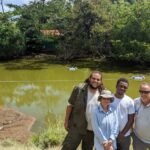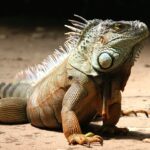The abundant biodiversity of the Caribbean, rich and unique in the world, is under numerous threats. As with all island systems, invasive alien species are a major problem. Originating from other territories, these animals or plants are introduced voluntarily or by accident, and disrupt local ecosystems through competition, predation, or via their pathogens.
Since 2021, the MERCI project, an acronym for “Managing exotic reptiles on Caribbean islands”, has been increasing knowledge about the threat posed by various reptile species in the Caribbean. This ambitious program, carried out by the Caribaea Initiative association, has already produced high-quality scientific data, trained students and raised awareness among a wide range of audiences. The program’s range of activities is so broad that it has gained a certain notoriety.
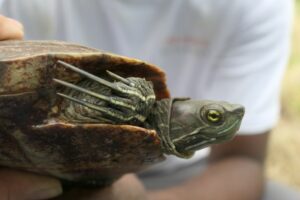
Antillean slider, Trachemys stejnegeri
In Les Saintes, a group of islands in the south of the Guadeloupe archipelago, some exotic reptiles are already having a significant impact. Following the gradual invasion of freshwater turtles, the Marigot pond showed a degradation of a its ecosystem. The Conservatoire du Littoral then decided to called on the Caribaea Initiative scientists involved in the MERCI project to take a strong action: rid the pond of its problematic occupants to allow the ecosystem to rebuild itself.
Several missions have been organized in the Saintes, with a much more comprehensive objective than simple eradication. Capturing the turtles, which is necessary for this process, represents a unique opportunity to collect a wide range of data, and learn more about the invasive species and its impact on the local ecosystem.
Starting in February 2023, traps were set to capture the turtles. A total of 71 individuals of Trachemys stejnegeri, a species originated from Puerto Rico commonly known as the Antillean slider, were captured. The individuals were measured, weighed, sexed and photographed, and their behavior was also studied. These data will enable comparisons with other exotic turtle populations in Guadeloupe.
Genetic analyses of the contents of their digestive tract, liver samples and blood samples will also enable us to determine their precise diet and detect the pathogens that the turtles may be carrying. These data will provide new insights into the impact of this species on local biodiversity and enable informed decision-making on future prevention and management measures.
Finally, the missions carried out in Les Saintes played a key role in preventing biological invasions: raising public awareness. Indeed, freshwater turtles, even when exotic and invasive, are generally perceived positively by the local population and visitors alike. Easily observed and harmless to humans, they are not perceived as a threat. To justify the necessity of the captures made at the pond, but also to raise awareness about the general threat posed by invasive alien species, an educational panel was created and installed in front of the pond. Journalists took part in one of the missions in Les Saintes, and the report was broadcast on the news of the local TV channel Guadeloupe la 1ère (watch the TV report). Finally, at the Traditour, a popular sporting event in Guadeloupe, a stand featuring a variety of resources enabled the Caribaea Initiative association to present the MERCI project, its objectives and actions, and to talk about the threats posed by invasive exotic reptiles.
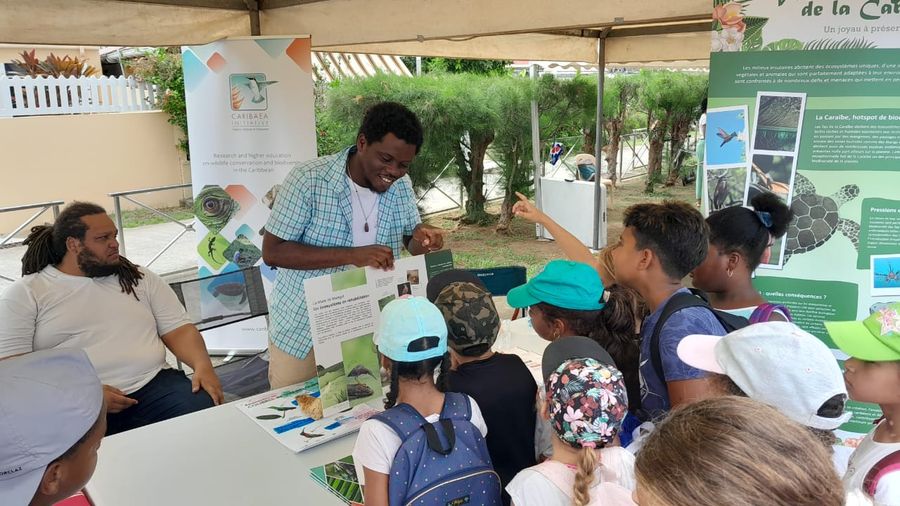
The team presents invasive alien reptiles to children
Read the mission reports (PDF)
Follow the team on in Les Saintes, in the video below.
Last modified: 29 August 2023

